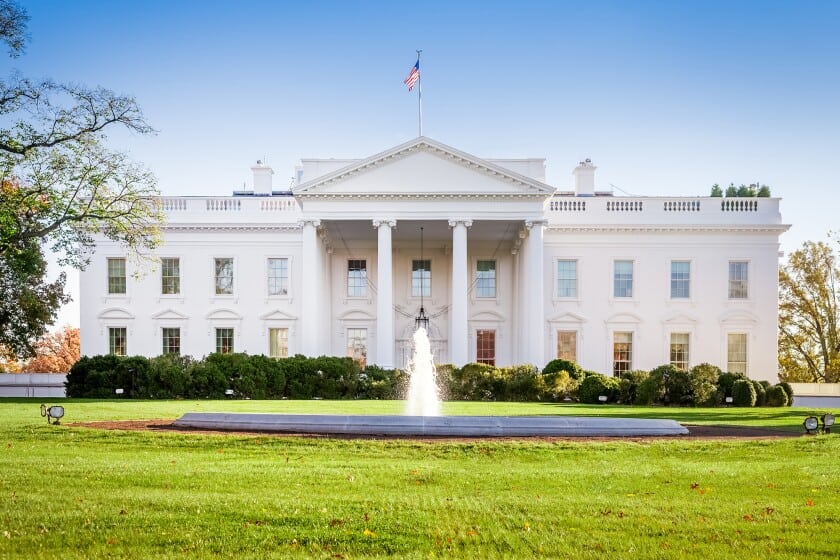An executive order that would create the nation’s first national security screen of U.S. investment into China will not unwind transactions consummated before the directive is issued, three former government officials told The Deal.
But it could undo American investments in Chinese companies and startups that are closed after President Joe Biden unveils the regulatory scheme this summer, said the lawyers, all former officials with the Committee on Foreign Investment in the U.S. That could include investments made as part of a multi-stage agreement.
Dubbed “Reverse Cfius,” the outbound screen would complement the work of the Treasury-led, nine-agency panel that vets inbound foreign transactions, especially from China.
“My best guess is that it’s going to be easiest to sell this as not being invasive if it’s forward-looking rather than backward-looking,” said Jonathan Gafni, senior counsel and head of U.S. foreign investment at Linklaters LLP.
“After the executive order comes out, they have to set up a mechanism for reviewing future transactions,” explained Gafni, the former deputy national intelligence officer for Cfius support at the Office of the Director of National Intelligence.
“I can’t see them looking backwards as a first step. That may be a potential future expansion of the regime,” he cautioned.
David Plotinsky, a partner at Morgan, Lewis & Bockius LLP, and a specialist in national security reviews of international transactions, warned about a potential complication for investors.
“Companies could still find themselves in a bind if they have contractual obligations to make multi-phase investments, and some of those investment phases occur after regulations get issued and are therefore swept up by the new regime,” he said.
Biden is expected to invoke the International Emergency Economic Powers Act, better known as IEEPA, as the legal authority for issuance of the executive order, noted Plotinsky and a lawyer who spoke on background.
“The executive order presumably would be fairly broad,” the third attorney observed, but the regulations to implement it would be relatively targeted and narrow.
“There’s a natural desire to be broader in the executive order so you don’t have to keep on going back and getting a new executive order if you want to make tweaks,” he explained.
The Reverse Cfius order would allow the government to block or condition a small set of transactions and collect data on a range of investments into China that might raise national security alarms, the attorney said.
Once regulations are in place for the outbound screen, joint ventures, private equity, venture capital and other transactions that are subsequently completed could be dismantled.
“What you’ll have in the first instance is essentially a pilot program — very narrow, targeted, intended to allow the government to address immediate, short-term concerns that they may have,” the third attorney said. The information to be gathered by the government could inform any expansion of the screen.
The Deal reported June 6 that the new regulations initially would focus on safeguarding America’s leadership on cutting-edge technologies such as semiconductors, artificial intelligence and quantum computing.
Investments in innovations with military applications that include technology transfer, intellectual property and management expertise would be the main target.
The White House directive is set to be released as Congress considers legislation to establish an outbound investment regimen.
“Like the anticipated executive order, the draft outbound investment review legislation in Congress is forward-looking,” said Plotinsky, former acting chief of the Department of Justice’s foreign investment review section.
“Although as a strictly legal matter I think Congress could probably also apply the restrictions retroactively if it wanted, I doubt Congress has any appetite to force divestments,” he said.
Cfius has the ability to undo completed transactions that were never notified to the panel and has increasingly flexed that power in recent years.
“If people are happy or unhappy with the scope of the executive order,” Gafni predicted, “we might see proposed legislation to change the remit of the body that is handling outbound foreign investment.”
A 2023 appropriations bill set aside a combined $20 million for the Treasury and Commerce departments to implement the outbound reviews. Both agencies submitted reports to Congress earlier this year on their plans.
Treasury is considered likely to take the lead on Reverse Cfius because of its experience with Cfius and sanctions and the key role it’s played on development of an outbound review scheme.
But Commerce could be tapped due to its involvement with export controls, implementation of the CHIPS and Science Act that promotes domestic semiconductor manufacturing and its authority over trade with China.
The White House, Treasury and Commerce did not respond to requests for comment.
Editor’s note: The original version of this article was published June 16, 2023, on The Deal’s premium subscription website. For access, log in to TheDeal.com or use the form below to request a free trial.




